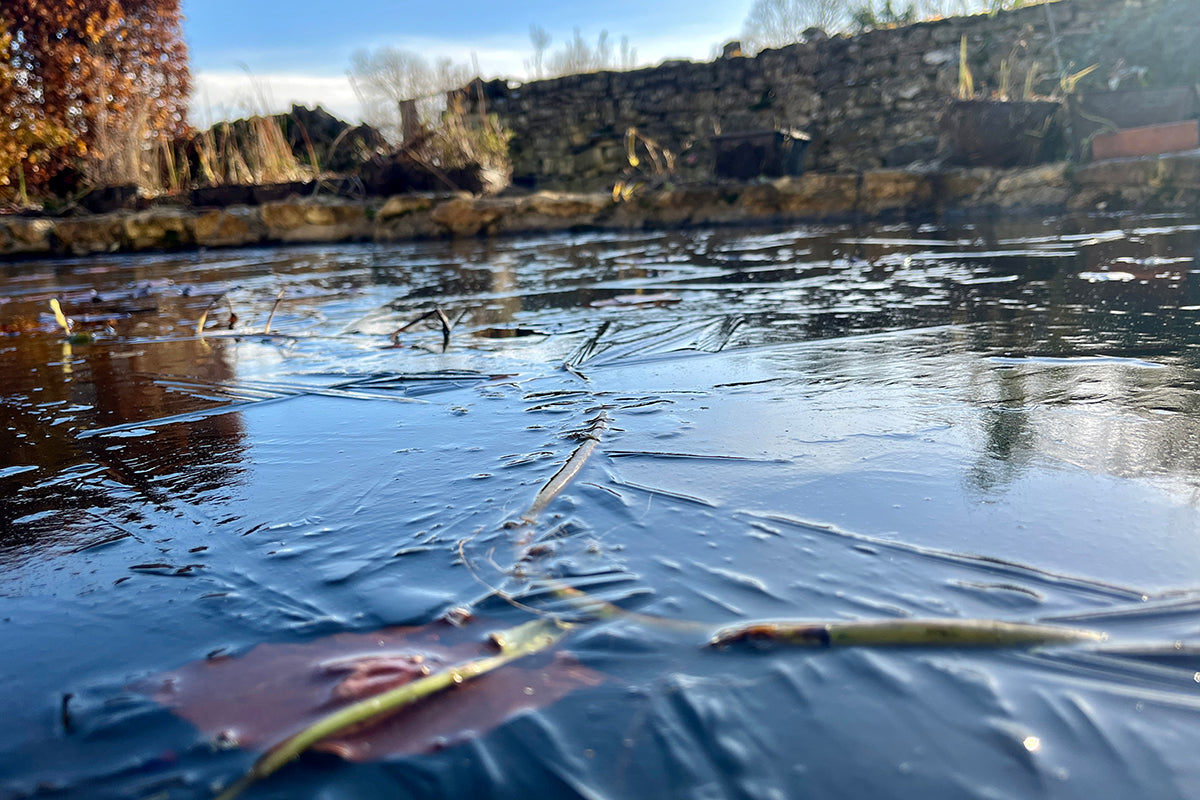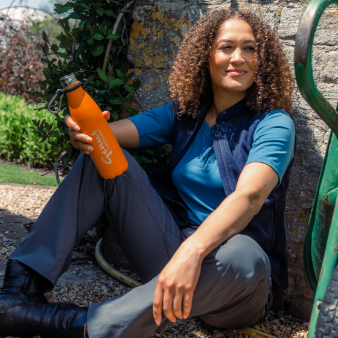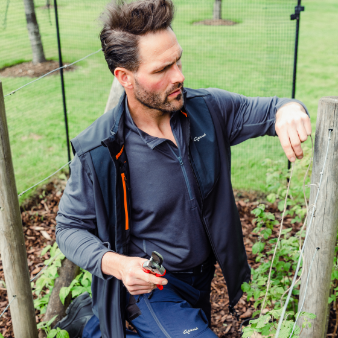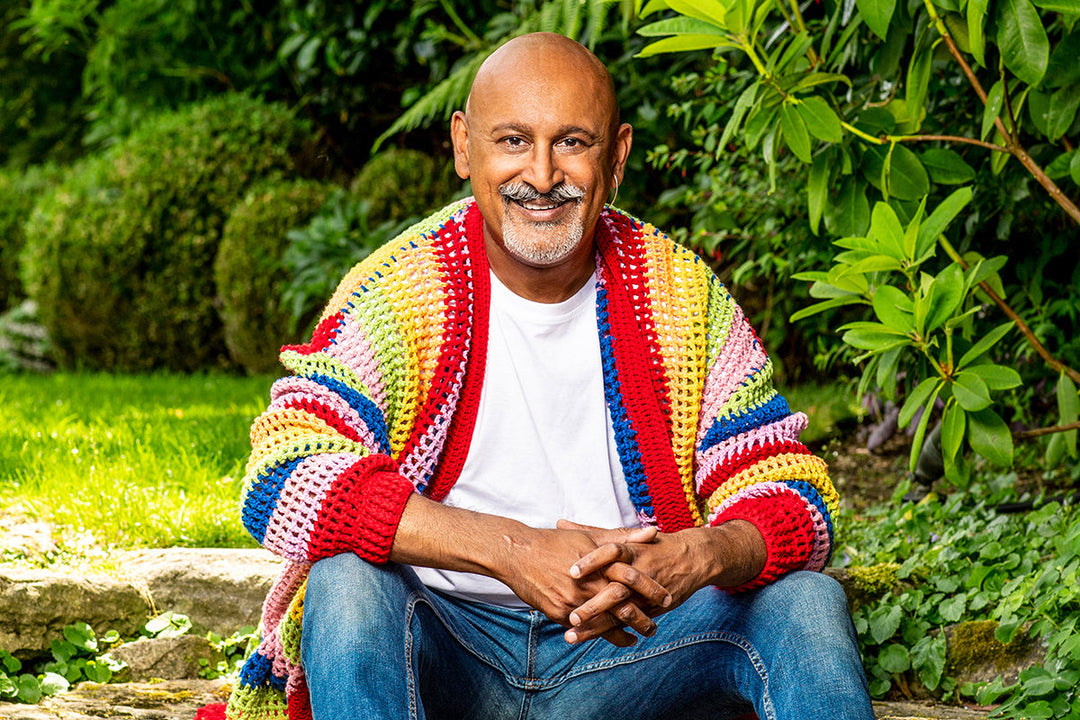Frozen ponds

After our recent talk of mild weather and plants still in flower, temperatures around the country plummeted overnight killing off any borderline hardy perennials or ‘last-man-standing’ annuals.
Away from the borders, one issue for garden owners is what to do with frozen fishponds. Ponds with deep water will be buffered to some extent against any issues surrounding oxygen depletion, and a short spell of ice is normally harmless. Prolonged periods of ice can be harmful however. Avoid the temptation to break the ice - this can be harmful to fish. Smashing ice creates sound waves that travel through the water, causing stress to fish which can be potentially fatal. Try to use more gentle de-icing methods. One technique is carefully pouring boiling water over the ice to create an oxygen exchange hole. If the pond isn't completely frozen floating a tennis ball or football can help prevent further ice formation by maintaining water movement.
For long-term protection, it might be worth investing in preventative equipment. An air pump is one solution, circulating water from the bottom to the top, preventing complete freezing, while simultaneously releasing harmful ammonia and reintroducing oxygen. Low wattage pond heaters won’t heat the whole pond but will keep a small area of the pond ice free. All these solutions are something of a moot point at Genus HQ.
After a few days away we returned to the garden only to spot a large white bird flying away from the pond. Not a seagull. Not a heron, but a fish-eating great white egret. Larger than the more common little egret they have a 5ft wingspan and weigh nearly two pounds. Once a rare visitor to the UK they’re now a more common sight especially for us in the nearby Cotswold Waterpark. Our fish population has now been reduced to zero. Whilst disappointing, we're not going to replace them. Ponds without fish make better environments for other wildlife.
We're hoping that the dragonfly and damselfly population will flourish without any fishy predators to reduce their numbers. It’s always nice to turn a negative into a positive.







